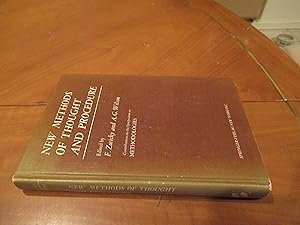fritz zwicky wilson richard bellman (1 résultats)
CommentairesFiltres de recherche
Type d'article
- Tous les types de produits
- Livres (1)
- Magazines & Périodiques (Aucun autre résultat ne correspond à ces critères)
- Bandes dessinées (Aucun autre résultat ne correspond à ces critères)
- Partitions de musique (Aucun autre résultat ne correspond à ces critères)
- Art, Affiches et Gravures (Aucun autre résultat ne correspond à ces critères)
- Photographies (Aucun autre résultat ne correspond à ces critères)
- Cartes (Aucun autre résultat ne correspond à ces critères)
- Manuscrits & Papiers anciens (Aucun autre résultat ne correspond à ces critères)
Etat En savoir plus
- Neuf (Aucun autre résultat ne correspond à ces critères)
- Comme neuf, Très bon ou Bon (Aucun autre résultat ne correspond à ces critères)
- Assez bon ou satisfaisant (1)
- Moyen ou mauvais (Aucun autre résultat ne correspond à ces critères)
- Conformément à la description (Aucun autre résultat ne correspond à ces critères)
Reliure
- Toutes
- Couverture rigide (1)
- Couverture souple (Aucun autre résultat ne correspond à ces critères)
Particularités
- Ed. originale (1)
- Signé (Aucun autre résultat ne correspond à ces critères)
- Jaquette (Aucun autre résultat ne correspond à ces critères)
- Avec images (1)
- Sans impressions à la demande (1)
Langue (1)
Prix
- Tous les prix
- Moins de EUR 20 (Aucun autre résultat ne correspond à ces critères)
- EUR 20 à EUR 40 (Aucun autre résultat ne correspond à ces critères)
- Plus de EUR 40
Livraison gratuite
- Livraison gratuite à destination de France (Aucun autre résultat ne correspond à ces critères)
Pays
Evaluation du vendeur
-
New Methods Of Thought And Procedure. Contributions To The Symposium On Methodologies
Edité par Springer-Verlag / Office For Industrial Associates Of The California Institute Of Technology / Society For Morphological Research, New York, 1967
Langue: anglais
Vendeur : Arroyo Seco Books, Pasadena, Member IOBA, Pasadena, CA, Etats-Unis
Membre d'association : IOBA
Edition originale
EUR 283,95
Autre deviseEUR 49,20 expédition depuis Etats-Unis vers FranceQuantité disponible : 1 disponible(s)
Ajouter au panierHardcover. Etat : Very Good +. 1st Edition. Viii, 338 Pp.Brown Cloth Lettered In White. First Printing, 1967. Lght Wear. Fine Essays, First Published Here. Bookplate Of Garrett Hardin, Which Is Signed By Someone Else And With That Person's Signature On Front Free Endpaper. Garrett James Hardin (1915 -2003) Was An American Ecologist. He Focused His Career On The Issue Of Human Overpopulation, And Is Best Known For His Exposition Of The Tragedy Of The Commons In A 1968 Paper Of The Same Title In Science, Which Called Attention To "The Damage That Innocent Actions By Individuals Can Inflict On The Environment". He Is Also Known For Hardin's First Law Of Human Ecology: "We Can Never Do Merely One Thing. Any Intrusion Into Nature Has Numerous Effects, Many Of Which Are Unpredictable." A Major Focus Of His Career, And One To Which He Returned Repeatedly, Was The Issue Of Human Overpopulation. This Led To Writings On Controversial Subjects Such As Advocating Abortion Rights, Which Earned Him Criticism From The Political Right, And Advocating Strict Limits To All Immigration, Which Earned Him Criticism From The Political Left. In His Essays, He Also Tackled Subjects Such As Conservation And Creationism. He Was Also A Proponent Of Eugenics And A Vice-President Of American Eugenics Society. In 1968, Hardin Applied His Conceptual Model Developed In His Essay "The Tragedy Of The Commons" To Human Population Growth, The Use Of The Earth's Natural Resources, And The Welfare State. His Essay Cited An 1833 Pamphlet By The English Economist William Forster Lloyd Which Included An Example Of Herders Sharing A Common Parcel Of Land, Which Would Lead To Overgrazing. Hardin Blamed The Welfare State For Allowing The Tragedy Of The Commons; Where The State Provides For Children And Supports Over-Breeding As A Fundamental Human Right.] Malthusian Catastrophe Is Inevitable. Hardin Stated In His Analysis Of The Tragedy Of The Commons That "Freedom In A Commons Brings Ruin To All." Environmental Historians Joachim Radkau, Alfred Thomas Grove And Oliver Rackham Criticized Hardin "As An American With No Notion At All How Commons Actually Work". In Addition, Hardin's Pessimistic Outlook Was Subsequently Contradicted By Elinor Ostrom's Later Work On Success Of Co-Operative Structures Like The Management Of Common Land, For Which She Shared The 2009 Nobel Memorial Prize In Economic Sciences With Oliver E. Williamson. In Contrast To Hardin, They Stated Neither Commons Or "Allmende" In The Generic Nor Classical Meaning Are Bound To Fail; To The Contrary "The Wealth Of The Commons" Has Gained Renewed Interest In The Scientific Community. Hardin's Work Was Also Criticized As Historically Inaccurate In Failing To Account For The Demographic Transition, And For Failing To Distinguish Between Common Property And Open Access Resources. Despite The Criticisms, The Theory Has Nonetheless Been Influential. In 1993, Garrett Hardin Published Living Within Limits: Ecology, Economics, And Population Taboos, Which He Described At The Time As A Summation Of All His Previous Works. The Book Won The 1993 Phi Beta Kappa Award In Science. In The Book, He Argues That The Natural Sciences Are Grounded In The Concept Of Limits (Such As The Speed Of Light), While Social Sciences, Such As Economics, Are Grounded In Concepts That Have No Limits (Such As The Widespread "Infinite-Earth" Economic Models). He Notes That Most Of The More Notable Scientific (As Opposed To Political) Debates Concerning Ecological Economics Are Between Natural Scientists, Such As Paul R. Ehrlich, And Economists, Such As Julian Simon, One Of Ehrlich's Most Well Known And Vocal Detractors. A Strong Theme Throughout The Book Is That Economics, As A Discipline, Can Be As Much About Mythology And Ideology As It Is About Real Science. Hardin Goes On To Label Those Who Reflexively Argue For Growth As "Growthmaniacs", And Argues Against The Institutional Faith In Exponential Growth On A Finite Planet.


